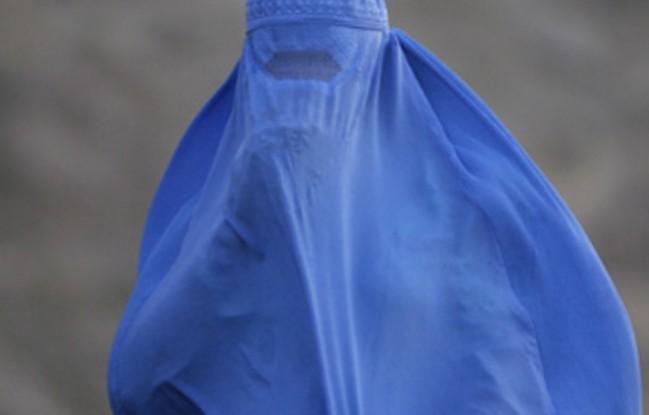![[Representational Image] burqa islam women](https://data1.ibtimes.co.in/en/full/623413/burqa-islam-women.jpg?h=450&l=50&t=40)
The call on the ban of the Islamic face veil burqa has been made by the right-wing group - Shiv Sena - in an editorial that appeared on its mouthpiece, Saamna on Wednesday, May 1. The Shiv Sena has appealed Prime Minister Narendra Modi to immediately take steps to ban all forms of face covers, including hijab and burqa, which hide the facial identity of the person and may even pose a threat to the national security. Its editorial points out that Sri Lanka also banned the burqa after the Easter Sunday bombings that killed over 350 people.
Shiv Sena urged the government that banning the burqa will also assist the security forces and they will not face any challenges in the identification of anyone.
"This restriction has been recommended as an emergency measure to ensure the security forces do not encounter difficulties in identifying anybody. People wearing face-masks or burqas could pose a threat to national security," the editorial said.
Shiv Sena, in fact, wrote a separate letter to the Home Ministry demanding a complete ban on all forms of the burqa (face veils) at all public places, government and private institutions on the lines of Sri Lanka to avert terror incidents.
Shiv Sena appealed to the Indian government that effective strategies should be formulated to prevent Easter bombings like attacks on Indian territories and in its embassies anywhere in the world.
The right-wing fringe group said that these type of face covers like Niqab and Hijab enable the terrorists to hide their identity from even CCTV cameras and other surveillance measures in place. The letter makes a strong reference to the neighbouring country, Sri Lanka's recent decision to ban the burqa.
The editorial on the mouthpiece, Saamna read that when the land of Ravana, Sri Lanka imposed the ban on burqa, why can't the land of Lord Rama do the same.
Pertinently, Shiv Sena is a key ally in the BJP led National Democratic Alliance pegged against the Congress-led United Progressive Alliance. Shiv Sena and BJP seem to have buried their differences and will contest the Lok Sabha elections jointly.
Shiv Sena's chief, Uddhav Thackery said in a separate editorial in Saamna that BJP Chief, Amit Shah came personally to meet him twice to sort out the issues between them and that both the parties are tied by the common thread of Hindutva.
Was Sri Lanka's burqa ban the precursor to the Shiv Sena's demand?
Sri Lanka imposed the ban on all forms of Islamic veil (burqa) from Monday after an emergency order was passed by the President, Maithruipala Sisirsena which stated that the measure was taken to ensure the national security. The decision came after the dastardly serial bombings on various churches and hotels across the island nation that killed nearly 350 people.
Although Hijab wasn't a prominent part of the traditional attire of the Muslim women in Sri Lanka until the late 1990s, they started to cover their face which is thought to be an influence of Wahabbi Islam.

But in India, Muslim women are often sported wearing face veils which has a legacy dating back to several decades. It remains to be seen whether the PM, Modi who is currently campaigning for the Lok Sabha polls will ban the Hijab, the way his government prohibited the Tripe Talaq. Muslims constitute 14.2 per cent of the total population (173 million) in India.










